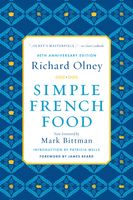Advertisement
Cheeses
Appears in
Published 1974
Compose your cheese platters with care—and, particularly, if you plan to serve a fine wine as an accompaniment. Strongly flavored fermented cheeses, very sharp cheeses, or heavily salted cheeses will annihilate a wine with any delicacy. If they are generally admired as companions to wine, it is because nothing else so effectively masks the negative qualities of a bad wine. Roquefort is a wine killer, as are most of the indifferent Camemberts found on the market today. Among the fermented cheeses, Reblochon and Pont l’Evèque are probably the safest, but only if they have been well cared for and remain delicate—almost sweet in flavor, soft, creamy, and uniform of texture. A Pont l’Evèque, even at best, has an astonishing perfume that belies its natural elegance. Good English Cheshire is a splendid cheese wine, as is Swiss Gruyère. Fresh chèvres, if properly drained and not oversalted, number among the truly sublime things of the table—it is rare to find decent examples outside of their areas of production. Some thirty-five or forty years ago, the general store in Marathon, Iowa, used to keep giant wheels of a Cheshire-Cantal type of cheese which I still remember very sentimentally. The only name we ever gave it was “rat cheese,” and it wouldn’t harm a Lafite.


